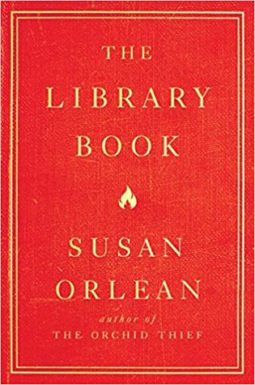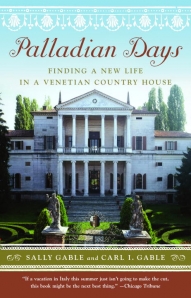This review contains affiliate links, which earn me a small commission when you click and purchase, at no extra cost to you. Thank you for supporting my small business and allowing me to continue providing you a reliable resource for clean book ratings.
In 1986, a devastating fire tore through the Los Angeles Public Library; it lasted seven hours and burned 400,000 books and damaged 700,000 more. Thirty years later, it’s still a mystery if it was arson, even though investigators strongly suspected a man of setting it.
Susan Orlean looks into the case as part of her Library Book, but this narrative explores much more than the fire and its aftermath. Orlean relates the history of the library in Los Angeles and its librarians but also writes about libraries and their keepers in general, about their role in society and the place they hold in so many people’s hearts. This is a paean to books, their homes, and the people who love them.
I had not read any of Orlean’s previous books, so I was eager to try this one, in part because of her reputation as a consummate writer and in part because I couldn’t resist the subject matter, being a book and library lover myself. I was not disappointed. I’m guessing she can make anything interesting with her skill and style and warm approach to the subject matter. Here, she goes back and forth between the history of the Los Angeles library and the men and women who have led it and the story of the 1986 fire, the investigation and the way people pulled together to try to rescue as many books as possible and rebuild.
Her style had me wanting to highlight probably a third of the book. One example shows what a library is and what her writing is like: “In the library, time is dammed up — not just stopped but saved. The library is a gathering pool of narratives and of the people who come to find them. It is where we can glimpse immortality; in the library, we can live forever.”
I loved her description of the father of the arson suspect: He had “silvery hair that stuck out straight, as if it were a quiver of exclamation points.”
All of it was compelling as an interweaving collection of stories about the Los Angeles library, books and the people who work for and use libraries in general. And all of it is irresistible for people who love books — who else would pick up this book, after all? I savored it, learned from it, and pondered on important points it brought up, such as how libraries are community centers, gathering places that are open to everyone (including the homeless, which means librarians have had to work within the community to try to tackle this complex problem), places that have been and still are vital centers of not just learning but engagement and doors for opportunity for those who need help the most. They have grown and evolved and survived, even and especially in the toughest economic times, because they may be needed the most in downturns.
If you’re not already a believer in the power of libraries, you will be after reading The Library Book.
Rated: Moderate. There is one use of strong language and five instances of moderate language. There’s hardly any other objectionable content; it’s mentioned a few times that patrons of the L.A. library have used private spaces for some sexual things and computers for viewing pornography, and that’s just about it for sexual references.
*I received an ARC in exchange for my honest review.
Click here to purchase your copy of The Library Book on Amazon.




